Local Legacies, Lasting Impact: Learning from DTA Scotland’s Local Legacy Giving Pilot

This week marks Remember a Charity Week, a national campaign that encourages people to consider leaving a gift to a charity in their will. To coincide with this, DTA Scotland is reflecting on the learnings from our recent Local Legacy Giving Pilot – a pioneering project that has supported nine Development Trusts (DTs) across Scotland to explore how legacy giving could help sustain their vital community work for generations to come.
As part of our Democratic Finance programme, this pilot represents a crucial step in helping community organisations move away from grant dependency by exploring alternative and long-term sources of unrestricted income.
Why Legacy Giving, and Why Now?
Legacy giving – also known as gifts in wills – represents a largely untapped opportunity for Development Trusts across the country. Research shows that a significant number of people in Scotland are open to leaving a gift in their will to charity. 42% of Scottish people indicate they are receptive to legacy giving yet in reality only 6% of people follow through. And those that do tend to prefer gifting to national charities over local charities.
For Development Trusts, which are rooted in their local communities and driven by people’s deep emotional ties to place, legacy giving offers a natural and meaningful way for local people to continue supporting their community long after they’re gone. Many of the DTs we spoke with during this pilot noted how passionately people feel about their local area, and how much they would welcome the opportunity to leave something behind that contributes to its continued success.
However, despite this potential, legacy giving is rarely on the radar for Development Trusts. Only approx. 12% of DTAS members have experience of legacy giving.
So what is preventing people leaving a legacy gift to their local Development Trust? Some key reasons include:
- lack of awareness that it is even an option
- clear support to create or update their will
- Development Trusts not selling their value or getting their legacy messaging right
That’s where this pilot came in.
About the Pilot
Running from September 2024 to September 2025, our Local Legacy Giving Pilot involved nine Development Trusts from across Scotland. The pilot was designed and delivered by DTA Scotland’s Democratic Finance team, who provided tailored support to help these organisations build confidence, capacity, and practical tools around legacy giving.
Through one-to-one support, group workshops, shared learning sessions, and partnerships with organisations like WeWill (a digital will-writing platform), the pilot explored how DTs can integrate legacy giving into their broader fundraising strategies.
What We Learned
- There is Real Appetite – But We Need to Support It
Across the pilot, we saw genuine support for legacy giving, both from Development Trusts and from local community members. People want to leave something behind for the places that matter most to them – but they often don’t know how. And DTs are not always sure how to have those conversations.
What’s needed is tailored support that speaks to the unique role of DTs within their communities. Generic fundraising advice doesn’t cut it here. DTs are embedded, trusted, and local, which gives them a strong foundation – but it also brings sensitivities and practical challenges.
- Low Capacity is a Major Barrier
Many DTs are run entirely by volunteers or operate with very small staff teams. Understandably, their focus is on delivery – on running vital services, operating community hubs, managing local assets, and responding to local needs.
This means that even where the interest in legacy giving exists, the time and headspace to develop and run a campaign is often lacking. Capacity for fundraising tends to focus on short term funding deadlines and opportunities, and a legacy giving campaign requires patience and long term thinking. That’s why our support is focused heavily on providing practical tools, templates, and handholding support – making it as easy as possible for DTs to run a successful local legacy giving campaign.
- Talking About Legacy Giving is Hard – Especially Locally
Legacy giving is inherently a sensitive subject. It involves conversations about death, money, and long-term planning. When you’re part of a small community, where everyone knows each other, these conversations can feel even more delicate.
Many DTs told us they lacked confidence in how to raise the subject without feeling intrusive. Others worried about getting it “wrong” or putting people off. There’s no one-size-fits-all approach here, but we are developing training, messaging guides, and example scripts to help ease these anxieties.
Normalising the conversation – particularly during national moments like Remember a Charity Week – also helps make legacy giving feel like a natural and generous act, rather than a taboo subject.
- Storytelling is Key
Perhaps the most important learning from the pilot is the importance of storytelling. Development Trusts do incredible work – but they are often too busy doing the work to shout about it.
Local people may know that their DT runs the local hall or community café, but they may not fully understand the broader impact: how the Trust has supported young people, provided emergency food, created local jobs, restored historic buildings, and more.
Legacy giving is fundamentally about believing in a vision for the future. That means DTs need to be able to tell their story in a way that is compelling, clear, and future-facing – helping people see why their gift matters and what kind of legacy it could create.
Our Partnership with WeWill
A component of the pilot has been our collaboration with WeWill, an online platform that allows individuals to write or update their will easily – and include a charitable gift if they choose.
WeWill also enables Development Trusts to track will income, giving them insight into potential future gifts and supporting better long-term planning.
We will be continuing this partnership beyond the pilot, offering DTAS members ongoing access to WeWill as part of our wider support for legacy giving.
What’s Next?
Between now and the end of 2025 we’ll be working with the pilot participants to gather formal feedback and learning, which will feed into the creation of a brand-new Local Legacy Giving Toolkit, launching in 2026.
The Toolkit is being designed specifically with DTs in mind, recognising their unique strengths and challenges. It will include:
Promoting Legacy Giving
- Campaign guidance (audiences, messaging, timing, channels)
- Templates for materials (leaflets, posters, outreach letters)
- Creating a legacy page on your website & telling your impact story
- Real-life case studies
Practical Tools
- Training materials for staff, volunteers & trustees
- Guidance on sensitive conversations
- Using online will-writing platforms
- Recognising gifts (e.g. plaques, thank-you walls)
Legal & Financial Guidance
- Overview of wills and legacy types
- Managing legacy income within your fundraising strategy
- Access to legal advice for legacy-related issues
And we’ll continue to share and promote Remember a Charity Week as a key national moment to raise awareness and start conversations locally.
Want to Learn More?
As we look to the next phase of this work, we want to thank the nine pilot groups for their openness and engagement, and we invite all local community organisations to explore how legacy giving might become part of their journey too.
Please get in touch with our Democratic Finance team at morven@dtascot.org.uk
And don’t forget to check out the Remember a Charity Week campaign next week for ideas, inspiration, and national visibility on this important topic.
